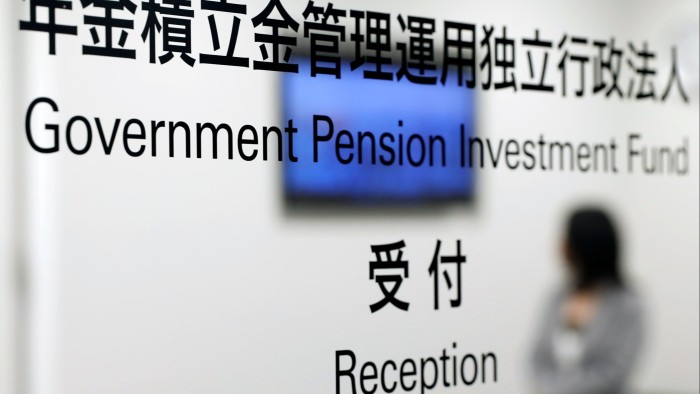Paying passive managers can improve ESG performance, study finds

Simply sign up to the ESG investing myFT Digest -- delivered directly to your inbox.
Latest news on ETFs
Visit our ETF Hub to find out more and to explore our in-depth data and comparison tools
Paying passive asset managers specifically for engagement can improve the environmental, social and governance performance of companies, according to a new academic study.
The finance working paper, published by the European Corporate Governance Institute, focused on a “natural experiment in responsible investment” conducted by Japan’s Government Pension Investment Fund, the world’s largest public pension fund.
The GPIF gave its largest passive manager — Japan’s AM One — a remunerated mandate to improve the ESG performance of portfolio companies in 2018.
The authors, Marco Becht, professor at Université Libre de Bruxelles, Julian Franks, a professor at the London Business School, and Hideaki Miyajima and Kazunori Suzuki, professors at Waseda University, found that “engagement by the asset manager has resulted in improvements in some of the ESG scores for mid and large cap companies”.
The engagement mandate was separate from the asset management contract that was already in place to invest and manage equity securities. AM One was paid “separately” for engagement, according to the study.

This article was previously published by Ignites Europe, a title owned by the FT Group.
The asset manager was tasked with improving the ESG performance of constituents of the Tokyo Stock Price Index, or Topix, which is the main investment benchmark for the GPIF’s passive portfolio.
The firm focused its engagement efforts on the most valuable companies in the portfolio and “almost all” of the Topix 100 large-cap constituents were engaged at least once on ESG issues.
The academics used private data from the asset manager to evaluate the impact of the engagement programme using “difference-in-differences”, whereby they compared the ESG scores of companies that were engaged and those of companies that were never engaged, before and after the start of the programme.
In addition, as part of its “dual strategy” to improve the ESG performance of Japanese listed companies, the GPIF had adopted two best-in-class indices in the previous year, rewarding companies with high ESG scores through additional equity investment.
The authors found “some evidence that GPIF’s portfolio tilt towards ESG indexes has created financial incentives to improve ESG scores”.
“ESG scores in Japan have increased significantly since 2017 and our evidence suggests that there is a link with GPIF’s approach to stewardship,” the academics write.
The paper found that the programme “successfully addresses one of the main criticisms of active ownership by passive managers”, which is the “absence of remuneration for stewardship services beyond a standard asset management fee”.
*Ignites Europe is a news service published by FT Specialist for professionals working in the asset management industry. Trials and subscriptions are available at igniteseurope.com.

Comments